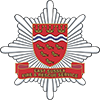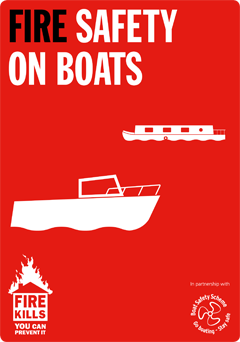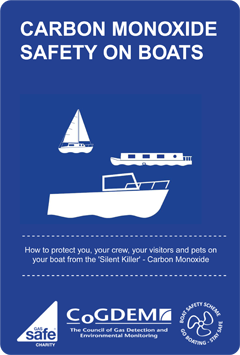The number of boat fires on coastal and inland waters is relatively low.
However, when they occur they can have devastating consequences.
Due to the remote location of moorings, it can be difficult to gain access to the incident, which on many occasions results in the total destruction of boats.
Top Safety tips
- Make sure you have a working smoke alarm/CO2 alarm fitted.
- Barbecues shouldn't be used on boats - hot charcoal gives off dangerous amounts of CO and blown embers could set your boat alight.
- Keep cabin ventilation clear to prevent a build-up of toxic CO.
- Make sure all hobs have shut-off or isolation valves.
- Use a trained marine electrician to install and service electrics.
- Store gas cylinders outside, in a self-draining and fire resistant locker. Keep them upright and secured from moving.
- Only carry spare petrol if necessary and store it in a self-draining locker or on open deck.
- Don't go to sea without a VHF radio. Have a charged-up, hand-held, waterproof one ready for use at any time.
- Check extinguishers on a regular basis for serious dents, leaks and loss of pressure.
- Have enough life jackets for everyone on board, and keep them in good condition.
- Make sure people know how to close emergency valves and switches in case of fire.
Boat Safety Scheme
The Boat Safety Scheme, or BSS, is a public safety initiative owned by the Canal & River Trust and the Environment Agency. Its purpose is to help minimise the risk of boat fires, explosions, or pollution harming visitors to the inland waterways, the waterways' workforce and any other users.



